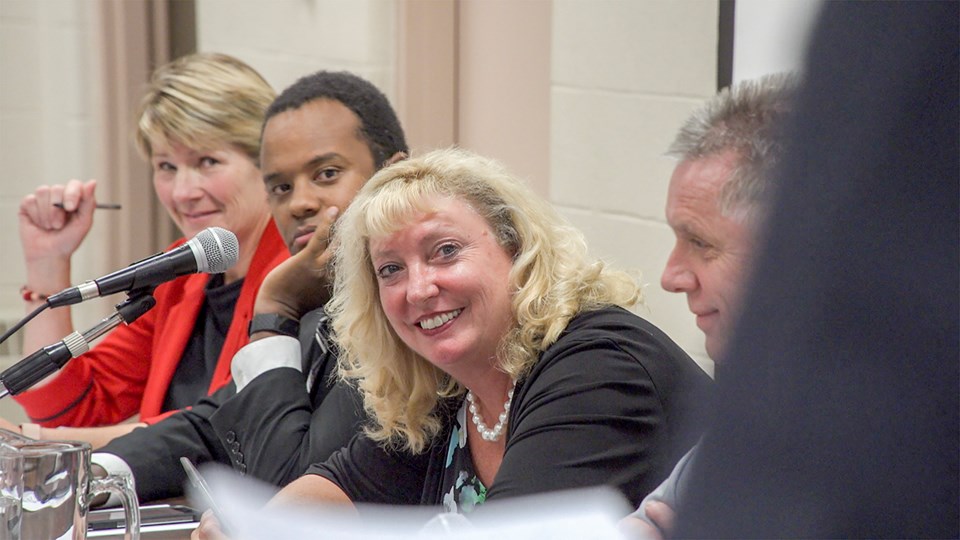Troy Shantz
The New Democrats would tax the wealthiest Canadians to pay for their climate change plan, a candidate debate heard last week.
NDP Candidate Adam Kilner wasted no time outlining the tax-the-rich strategy at a session hosted by Climate Action Sarnia at St. Benedict’s Parish Hall.
It would also create 300,000 new green jobs, he said.
At the first opportunity, People’s Party candidate Brian Everaert attacked the costliness of the NDP plan before a standing room only crowd.
“How are you going to pay for this? Are you going to raise taxes?” Everaert asked.
Kilner said his party would impose a 1% tax on wealth of $20 million or greater and 2% on people earning more than $210,000. It would also cut $3.3 billion in fossil fuel subsidies, bringing the 10-year total to about $70 billion, he said.
Incumbent Marilyn Gladu told the crowd the Conservative Party would take a regulatory approach and target top pollution emitters, including the transportation sector.
In a shout-out to Lambton College, Gladu said innovation in green tech would be a top priority for an Andrew Scheer government.
Liberal candidate Carmen Lemieux, who worked a year with Environment Canada after graduating university, defended the Grits’ record on reducing pollution, and pointed to the success of the hotly contested carbon tax.
She said the Liberals would also improve renewable technologies and make electric cars more affordable.
Green Party candidate Peter Smith called out the Liberals and Conservatives by noting that owning and building pipelines is a contradiction of real climate action.
“You can’t be cutting emissions and building new pipelines. The two are simply inconsistent,” he said.
When asked about maintaining Sarnia-Lambton’s economy in a world moving away from fossil fuels, Lemieux said local industry has untapped innovation for producing and reclaiming plastics.
“We have to capitalize on our local knowhow and knowledge and move forward so that our local industry can still be competitive and thrive in the new climate challenge considerations,” she said.
Everaert, a union ironworker, came to the defence of local industry. Environmental regulations are already observed and new technology affords clean processes that reduce impact on the environment, he said.
“It’s irresponsible to me to put pressure on the companies in this time. All it’s going to do is drive them to a country with less regulation,” he said. “Canada has regulations on gas and oil, and they do a good job of it.”
“We cannot avoid a climate catastrophe without ending the burning of fossil fuels. It’s that simple,” the Green’s Smith replied.
He said some refineries might close, but oil will always be needed, along with Sarnia’s expertise. Bitumen from Alberta’s oil sands could be better used in asphalt, as well as carbon fibre, nanotubes and graphite materials, he added.
“We’ve got the experience to do that in this part of the world. We’ve got the people that can build the plants and the people that can operate the plants,” Smith said.
Gladu noted the region's top employer is health care and that Sarnia has already begun to diversify. She listed several new bio-based manufacturers that have set-up shop in the Valley.
“We are making a change and we have to continue to do that,” she said.
